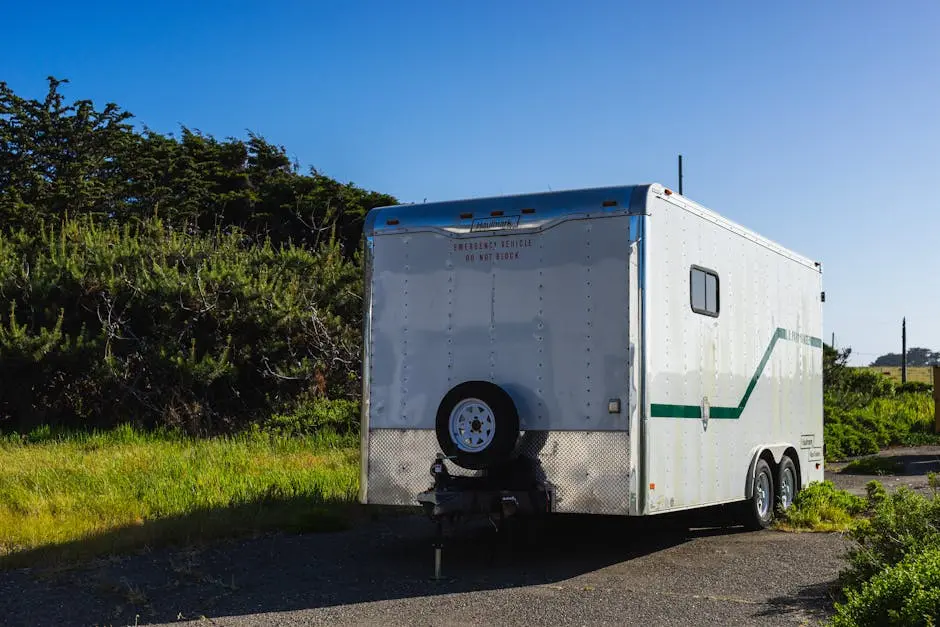When purchasing an RV, understanding what your warranty covers can be a bit of a puzzle. This guide will break down the common inclusions you can expect in an RV warranty while keeping it straightforward and approachable.

What is an RV Warranty?
An RV warranty is your safety net against unforeseen repair costs. Think of it like a security blanket for your RV, ensuring that certain components are replaced or repaired if they fail within the specified timeframe. This coverage can vary but often encompasses crucial elements to keep your RV functioning smoothly.
Typically, warranties are designed to cover new RVs, providing assurance during the early years of ownership. It’s worth mentioning that not all warranties are created equal. Some might offer comprehensive protection while others might cover only the basics, emphasizing the importance of carefully reviewing the terms.
Types of Coverage Offered
Understanding the types of coverage included can help you make informed decisions when buying an RV. Most warranties will cover mechanical breakdowns, which could include the chassis, engine, and other vital components. This helps in managing potential repair costs that might otherwise surprise you.
Appliances, such as the refrigerator, air conditioning unit, or the oven, are also commonly covered under an RV warranty. Since these are prone to malfunction with frequent use, having them under warranty ensures you won’t bear the burden of repairing these out of pocket.
Structural coverage is another important aspect, covering issues like leaks or major structural defects. While these occurrences may be less frequent, the peace of mind of knowing your investment is protected can’t be overstated.
Manufacturer’s Warranty Essentials
At the core of any RV purchase is the manufacturer’s warranty, a promise that your vehicle is free from defects in materials and workmanship upon delivery. The duration of this coverage typically spans from one to three years, though it’s vital to confirm these specifics with your dealer.
A manufacturer’s warranty acts as a test of time; should any part of your RV show signs of defect during this period, the manufacturer is obligated to cover repairs or replacements. This essential coverage provides a reliable buffer against early issues in your RV’s lifecycle.
Extended Warranty Considerations
Once your manufacturer’s warranty expires, an extended warranty can be a wise investment, especially if you plan on using your RV extensively. This type of warranty often includes coverage for major components like the powertrain and electronic systems, offering protection well beyond the initial years of ownership.
Extended warranties vary in coverage, so it’s crucial to assess what you absolutely need. Some offer road assistance benefits, tire coverage, and even perks like trip interruption protection. These extras can add convenience and further security as you explore the open roads.
Common Exclusions and Limitations
No warranty is all-encompassing; understanding the exclusions is just as important as knowing what’s covered. Routine maintenance like oil changes or brake inspections are generally not included. These are considered owner’s responsibilities.
Wear and tear, as well as damage resulting from accidents or misuse, are also common exclusions. Essentially, if the damage could have been prevented with proper care or avoided through cautious operation, it likely falls outside the scope of warranty protection.
Being aware of these limitations helps manage your expectations and budget, ensuring you’re not caught off guard when something isn’t covered.
Getting the Most Out of Your RV Warranty
The key to making the most of your RV warranty lies in regular maintenance and organization. Ensuring your RV’s upkeep through regular inspections and services can prevent small issues from becoming significant problems.
Keeping detailed records of all maintenance can be invaluable, serving as proof of due diligence if warranty claims arise. Make sure you understand the procedure for filing claims to avoid any delays or complications.
>Being proactive with your warranty can save you time and money, making every trip in your RV as enjoyable as possible.
Understanding Your RV Warranty: A Key to Peaceful Travels
Navigating your RV warranty can seem daunting, but knowing what is typically covered will set you up for smoother adventures. Always read your warranty details carefully and consult with your dealer if you have any questions about specific coverage terms.
